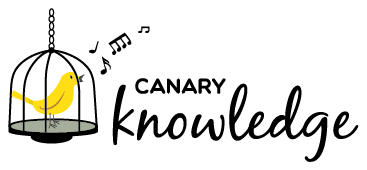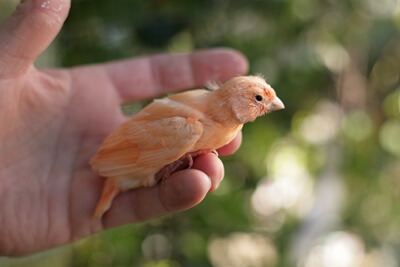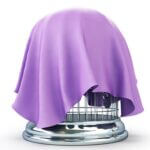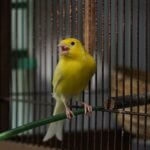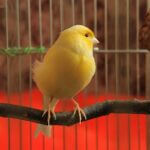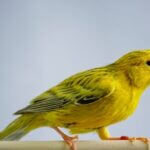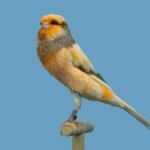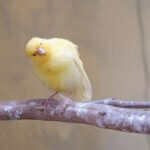Baby canaries usually hatch 13-14 days after being laid, emerging hungry for food. Newly-hatched canaries have sensitive digestive systems. So, if you have fledglings, they need to be fed the right diet.
Baby canaries should subsist on a diet of nutrient-rich nestling food consisting of softened seeds, hard-boiled eggs (or egg food), crushed fruits, and vegetables. Once you start weaning baby canaries, continue feeding them nestling food until they’re ready to start eating seed mixes.
Offering nestling food to your canaries supplies your baby canaries with the nutrients they require to grow healthy and replenishes the energy of the nursing parents.
What To Feed Canary Babies
Provide nestling food to your canaries on the 12th day of incubation. Nestling food is the food that a nursing female eats before feeding it to her hatchlings once they emerge from the eggs.
According to Biological Sciences, parent canaries are attuned to posturing behavior and calling by their chicks, which signals the time for feeding.
Once the fledgling canaries are ready to leave the nest, they’ll continue feeding on nestling food on their own. Eventually, they’ll transition to the normal seed mixes that adult canaries eat.
Nestling food should be nutrient-rich with a high protein content to ensure nursing parents receive enough nutrition to keep their energy levels high before the baby canaries hatch. Afterward, the same seed and supplement mix will aid the growth and development of canary chicks.
Here are the most important ingredients in canary nestling food:
Soft Seed
Canaries mainly eat a seed-based diet that consists of the following:
- Millet
- Hulled oats
- Rapeseed
- Flaxseed
- Perilla
While adult canaries can eat dry seed mixes easily, the digestive system of baby canaries is too fragile and underdeveloped to break down the hard shells of seeds. So, give them soft seeds.
There are several ways to soften seed mixes to make them more palatable and easy to digest.
You can boil the normal seed mix for 20 minutes and allow it to cool before offering it to your canaries. The parents will use this soft seed mix to feed their fledglings for the next 2 weeks as they go through their formative stages of growth.
You can soften the canary seed mix by soaking it in water. There are soaked seed mixes that you can get from a pet store and soak them using the directives prescribed on the packaging.
To prepare the seed mix for your baby canaries, do the following:
- Soak the seed mix at room temperature for 2-3 days to encourage sprouting.
- Strain the water.
- Check the seeds to ensure there’s no sign of mold growth.
- Rinse thoroughly before adding it to your nursing canaries’ food.
Boiled Egg or Egg Food
Fledglings require a high-protein diet to grow and develop healthily.
According to Comparative Biochemistry and Physiology, newly-hatched canaries undergo a rapid growth rate in the first 2 weeks after hatching, achieving 90% of their asymptomatic body mass by day 11.
Since eggs are a rich source of protein, include eggs in your canaries’ nestling food at least 12 days before they hatch.
Eggs also contain high amounts of calcium, which is crucial for the growth and development of bones, beaks, and feathers. Most of the calcium content is concentrated in the eggshells, so include crushed pieces of eggshells (put through a blender) in your canary’s nestling food.
The most common way to offer eggs to canaries is in the form of hard-boiled eggs. So, boil an egg for 10-15 minutes and let it cool before offering some to your baby canaries.
Alternatively, you can provide egg food. This is a crumb-like food mix containing eggs, bird seeds, and assorted vegetables.
Vegetables And Fruits
Baby canaries have weaker immune systems than fully-developed adult canaries. For this reason, it’s important to include immune-boosting foods in your nestling birds’ diet.
Leafy green vegetables and fruits are rich in vitamins and minerals, which support the immune system of adult canaries while feeding their fledglings.
Most fruits and vegetables can be fed to baby canaries, including:
- Apples
- Bananas
- Apricots
- Spinach
- Melon
- Broccoli
- Dandelion
- Grated carrots
- Tomatoes
- Kales
- Bok choy
- Collard greens
- Pineapple
Chop the vegetables into bite-sized pieces to make them easier for baby canaries to swallow.
When Can I Feed A Baby Canary?
Only hand-feed baby canaries once they’re fully weaned and ready to leave the nest.
This is usually when they’re about 4 weeks old. Fledglings less than 3-4 weeks old are directly fed by their parents from the nestling food you provide.
Once baby canaries are old enough to leave the nest (about 2-3 weeks after hatching), they’ll continue to feed on the nestling food before transitioning to the seed mix diet that adult canaries typically eat.
At this point, you can start hand-feeding them and begin introducing more variety to their diet.
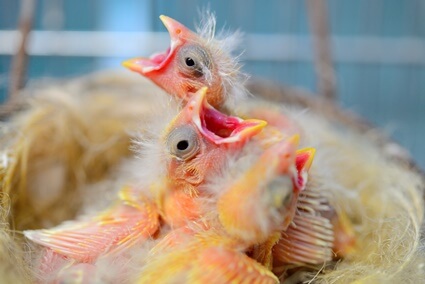
How Often Should You Feed Baby Canaries?
The recommended frequency of feeding for baby canaries varies depending on the stage of development that they’re currently in. If a baby canary hasn’t opened its eyes yet, it needs to be fed at least 5-6 times per day, with 3-4 hours intervals.
Once the fledglings’ eyes are open, you can feed them 3-5 times (once every 5 hours). When their feathers begin to emerge, you can feed them 3 times per day.
How Long Can A Baby Canary Survive Without Food?
As fragile and helpless as baby canaries are, they can survive without food or water for up to 24 hours.
However, this is unlikely to happen if the canary’s parents are around since the parents will feed their young each time they have access to food.
However, if both the parents of the fledglings are deceased, feed the orphaned birds yourself.
Hand Feed Baby Canaries
Although it won’t be possible to hand-feed newborn canaries all the time, it does have advantages.
For instance, hand-reared hatchlings make better pets in the long term because humans have socialized them. So, hand-fed newborn canaries are less fearful of humans.
Hand-feeding fledglings is a significant responsibility, requiring patience, commitment, and time. If you need to hand-feed a baby canary, there are guidelines you must observe:
Freshness
Ensure the food mix is fresh and safe for consumption. So, avoid feeding them leftover foods since they may harbor bacteria or yeast, which can be harmful to canaries.
Hot And Cold Spots
Mix it thoroughly to ensure a uniform temperature if you’re preparing food in a microwave.
Ideally, the temperature throughout the food mixture should be about 102-106 degrees Fahrenheit. If the food is hotter, it can cause burns to a canary’s crop.
If the food is too cold, a canary may digest it more slowly or reject it entirely.
Dilute Food
Day-old chicks should be fed a 90% diluted mixture as they still utilize the egg’s yolk sac. However, fledglings more than 1-2 days old should be fed a food mixture that’s 70-75 % liquid.
Right Tools
Syringes are preferred feeding tools for baby canaries since they allow more accurate recording volumes. However, if you don’t have a syringe, use a small spoon with its sides bent up and inward.
Keeping track of daily feeding is important to ensure you don’t overfeed your fledglings.
Proper Feeding
You can tell whether your canary is feeding properly if it rapidly bobs its head up and down.
This natural feeding response causes the trachea to close, making it possible for a canary to quickly swallow large amounts of food.
If your canary isn’t exhibiting this response during feeding, refrain from feeding it since this can cause food aspiration into the trachea and lungs, which can cause sudden death.
So, when hand-feeding your baby canaries, always feel their crops (the sac hanging at the base of the neck) to check whether they need feeding. Only administer food if the crop feels empty.
